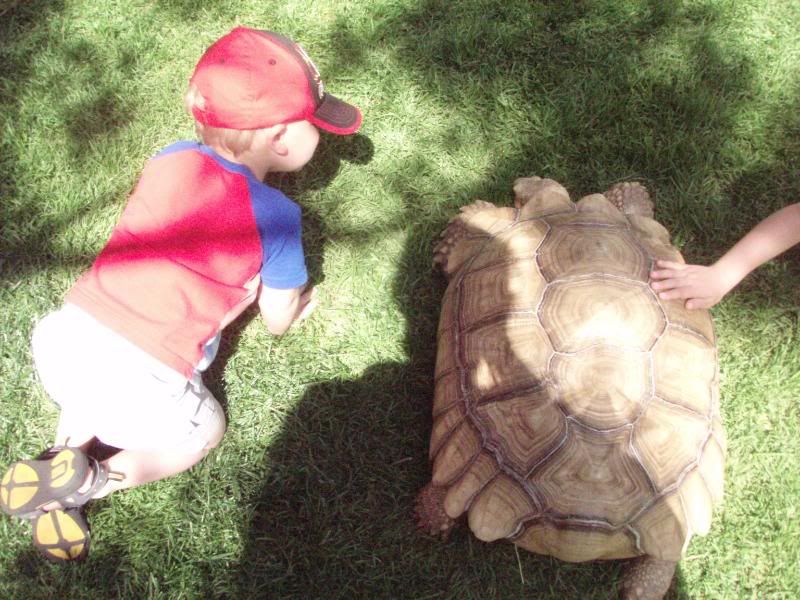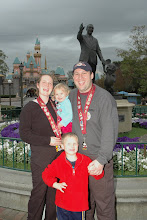This is Michael Pollan's whole argument from
In Defense of Food: An Eater's Manifesto condensed into 8 words. This is one of those books that has made me think a lot. In the book, he shows how the way humans eat has dramatically shifted in the last 150 years, but especially in the last 30+, although it has not made us healthier. Those who eat a Western diet, high in shelf-stable, processed, and convenience food, are getting sicker and sicker; we have seen a sharp increase in obesity, diabetes, heart disease, and cancer, called Western diseases because they are rarely present in cultures that follow traditional diets.
He establishes what we know about our current diet: we have moved from whole grains to highly refined ones (which we're now finding out is detrimental to our health), from a complex diet and a complex way of caring for the soil to a diet mostly based on corn and soy and treating soils with fix-all fertilizers, from producing quality food to producing lower quality in great abundance, and from eating based on culture to eating based on science (in which scientists spend their time trying to isolate the benefits of individual compounds when foods are generally greater than the sum of their parts).
He also corrective steps that we can take; I'll just include a few, so as not to completely bore you.
- Don't eat anything that your great-grandmother wouldn't recognize as food (no imitations or food products with unfamiliar and unpronounceable ingredients or high-fructose corn syrup).
- Avoid food products that make health claims (if they have to tell you it's good for you, it's probably not; there is no magic bullet for health).
- Shop mostly the peripheries of the supermarket (where you'll find dairy, meat, fresh produce) and stay out of the middle as much as possible (where you'll find highly refined and processed foods). However, the middle does provide beans, rice, spices, etc. So I won't completely avoid it. :D
- Get out of the supermarket when possible (farmers markets and individual growers are often more committed to producing high quality foods that are more nutritious and using healthy soils). If you have room, buy a freezer to preserve more from these sources and from those who sell pasture-fed meats (animals fed on a mostly corn/grain diet will not be as nutritious for you as those who have eaten grasses).
- Wild foods are good for you. These animals and plants have had to fend for themselves, so they have more antioxidants and other good compounds in them.
- Eat meals (instead of constant snacks), eat with other people, try to eat at a table, take your time eating. All of these foster us listening to our body, so we stop eating when full or close to full instead of just eating until the package is gone.
- Pay more for your food, and eat less of it (but eat more plants, especially leaves). To eat food from farmers markets, etc., is more expensive, but the food is more nutritious. Those who typically eat a Western diet are overfed but undernourished.
- Spend time in the kitchen and the garden, if possible. Taking more time to prepare food means that more is made using whole ingredients instead of convenience foods. Gardening gives you some control over the quality of your food or at least a greater appreciation for what some foods might be like.
I can't go into all his arguments here--but I highly recommend the book.
Note: After a day of watching what I am eating, I am realizing that this will be a lot harder than I thought. . . . But I figure I can try to do a little here or there and keep working at it: planting a garden, going to farmers markets more often, trying to buy less processed food, and cooking from scratch more.
 Thanksgiving Point has Family Night activities every Monday night. This week the Gardens did a Pirate night, and given Ryan's current obsession, we thought it was a great idea to go. They're allowing picnics for their FHE activities, so I packed a dinner of curried chicken salad sandwiches, Sun Chips, watermelon, cantaloupe, and lemonade. It was so refreshing, and we ate in the shade in a little bend of the stream.
Thanksgiving Point has Family Night activities every Monday night. This week the Gardens did a Pirate night, and given Ryan's current obsession, we thought it was a great idea to go. They're allowing picnics for their FHE activities, so I packed a dinner of curried chicken salad sandwiches, Sun Chips, watermelon, cantaloupe, and lemonade. It was so refreshing, and we ate in the shade in a little bend of the stream. They had storytelling, mapmaking (complete with a little gold coin), and a range of birds. We got to pet one, and then we just admired the blue macaw, the peregrine falcon, and the golden eagle below.
They had storytelling, mapmaking (complete with a little gold coin), and a range of birds. We got to pet one, and then we just admired the blue macaw, the peregrine falcon, and the golden eagle below.
 Afterward, they gave us popsicles! Arrh, what a fun evening!
Afterward, they gave us popsicles! Arrh, what a fun evening!










